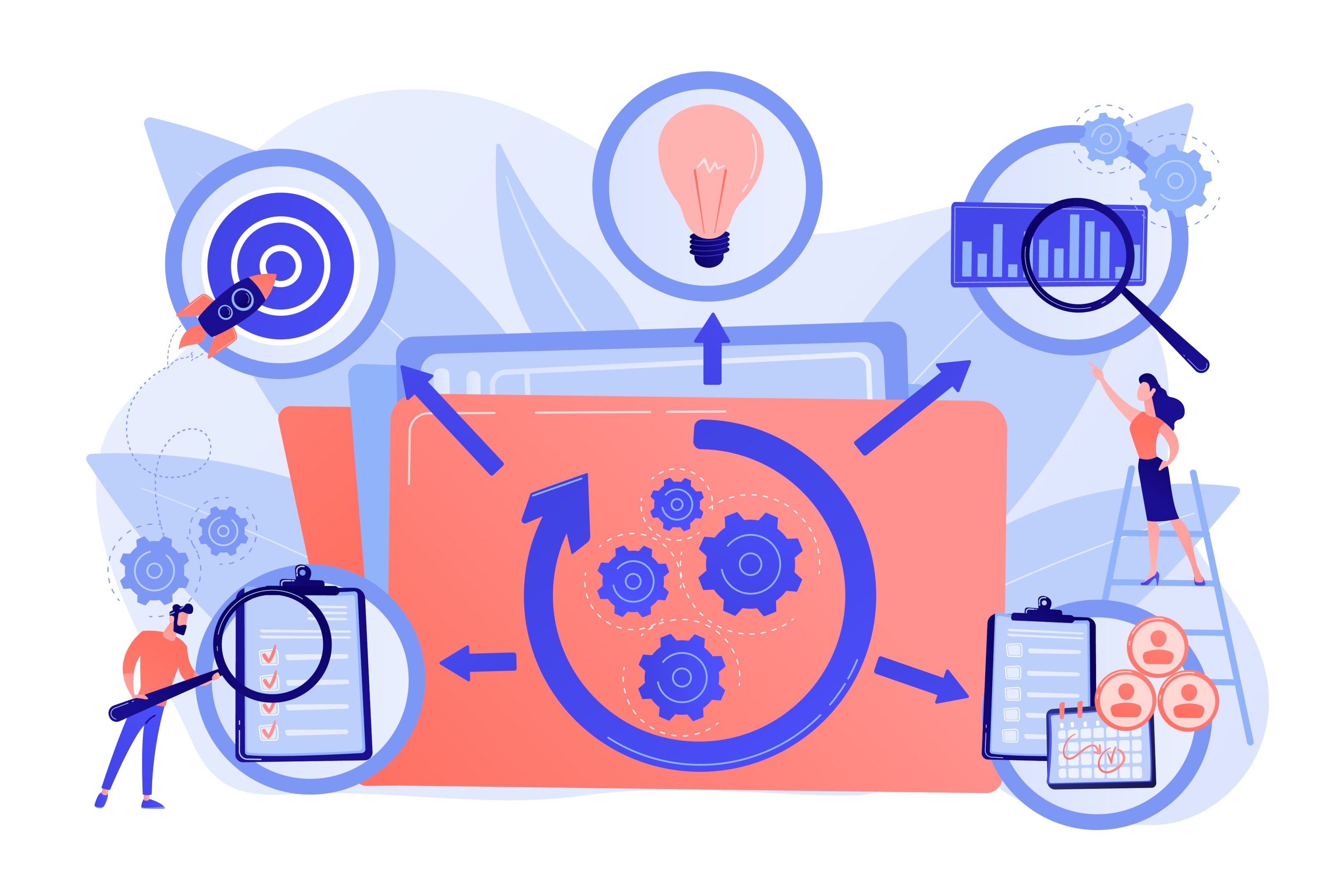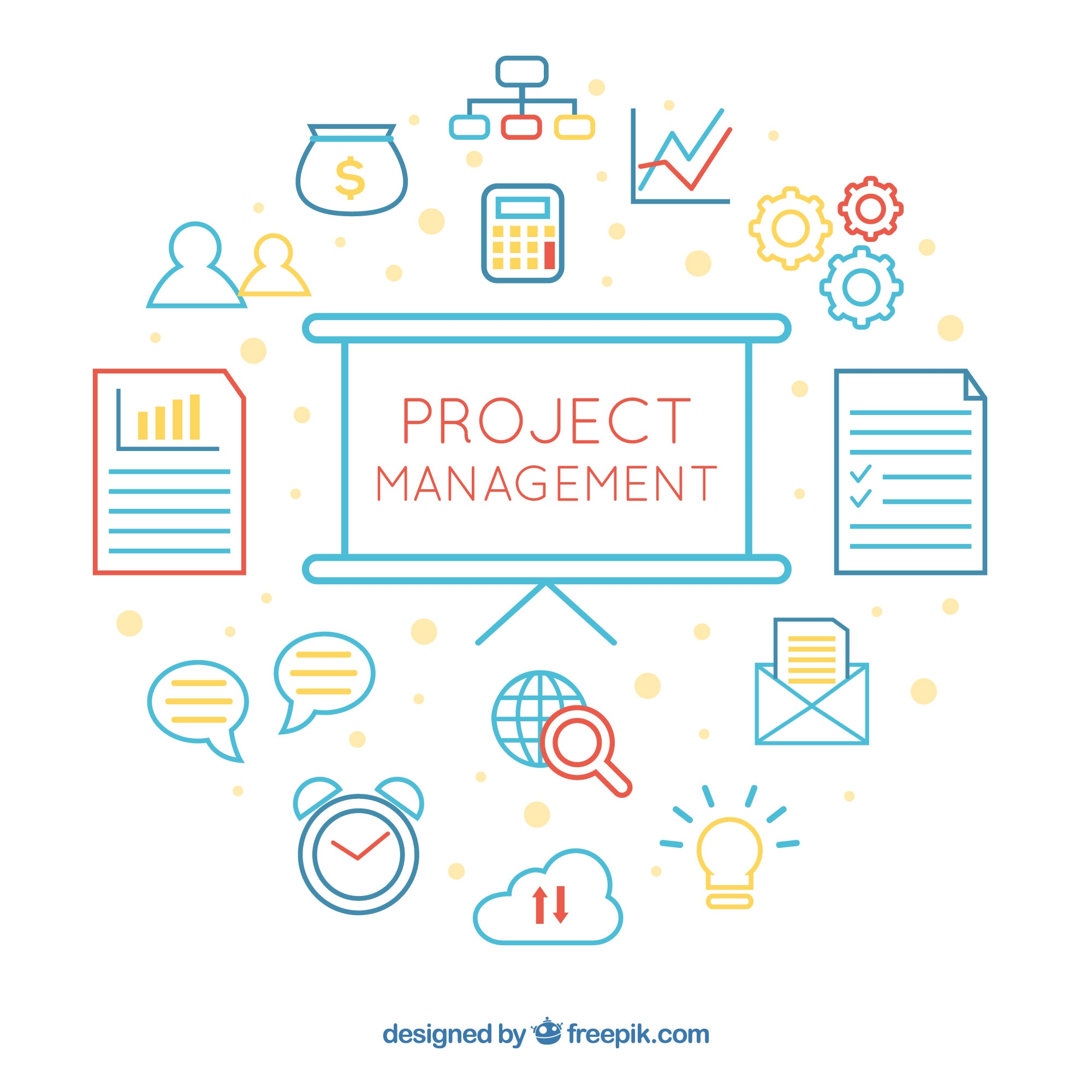

Project Manager Job Description: Complete Career Guide 2025
Published on February 17, 2025
By Marianella Saavedra Terkes · 7 minute read

The landscape of project management has undergone significant transformation in recent years, evolving far beyond traditional scheduling and task tracking. As organizations increasingly embrace digital transformation, project managers have become crucial orchestrators of success. According to the U.S. Bureau of Labor Statistics, employment of project management specialists is projected to grow 17% from 2023 to 2033, much faster than the average for all occupations. Whether you're exploring a career change or seeking to understand modern project management, this guide will illuminate the realities of being a project manager in 2025.
What is a (Traditional) Project Manager?
A project manager is a professional who plans, executes, and oversees projects from inception to completion. They are the strategic leaders who ensure that projects deliver value while managing data, time, budget, and scope. Using methodologies like Agile, Waterfall, or hybrid approaches, project managers coordinate resources, manage stakeholder expectations, and guide teams toward successful project delivery. Their work requires a sophisticated blend of leadership and technical understanding, as they must balance multiple priorities while ensuring team alignment and project success. Often, project managers consult with experts to ensure project success.
The Modern Project Manager: Beyond Traditional Project Management
The days of project managers solely focusing on Gantt charts and status reports are long gone. Today’s project managers are strategic business partners who blend leadership skills with technological acumen. They work at the intersection of business strategy and execution, managing everything from digital transformation initiatives to complex product launches that reshape how organizations operate.
Modern project managers not only manage individual projects but also group them into portfolios to better align with strategic goals and resource allocation. They add value by integrating tools to support and enhance collaboration.
In modern organizations, project managers collaborate intensively with stakeholders at all levels, from development teams to C-suite executives. This evolution of work has created opportunities for professionals who excel at both strategic thinking and practical execution. Regular industry events and certification programs offer continuous learning opportunities, enabling project managers to stay current with evolving methodologies and tools.
Project Management in the NoCode Era

The rise of NoCode and LowCode platforms has transformed how project managers approach digital initiatives. Today's project managers must understand both traditional development workflows and modern NoCode solutions to make informed decisions about project approaches. In the NoCode ecosystem, project timelines are often compressed, requiring different planning strategies and resource allocation methods. Project managers working with NoCode tools need to balance rapid development capabilities with proper governance and scalability considerations. This evolution has created a new breed of project managers who excel at bridging the gap between business needs and technical implementation, without necessarily requiring deep coding knowledge.
Key Responsibilities and Skills
As a project manager, your primary responsibilities revolve around planning, organizing, and overseeing projects from start to finish. This means defining the project scope, setting clear goals, and determining deliverables. A crucial part of this role is identifying and allocating the necessary resources to ensure the project runs smoothly. Effective project managers are adept at motivating and guiding their team, ensuring everyone is aligned with the project objectives.
In terms of skills, proficiency in project management tools and techniques is essential. Familiarity with Gantt charts, resource allocation, and risk management can significantly enhance your ability to manage projects effectively. Strong leadership and communication skills are also vital, as they enable you to inspire your team and keep stakeholders informed. Additionally, project managers need excellent problem-solving and analytical skills to think critically and make informed decisions. The ability to work well under pressure, prioritize tasks, and manage multiple stakeholders is also crucial for success in this role.
What Does a Project Manager's Day Really Look Like?
Imagine stepping into a project manager’s role at a dynamic organization. Your morning might begin with a daily meeting, coordinating with development teams and designers. By midday, you could be presenting project updates to stakeholders, and your afternoon might involve strategic planning sessions, design, or risk assessment workshops.
Project managers ensure that team members feel good about their contributions and support experiences. Throughout the week, project managers track progress and ensure that team members log their hours, which then seamlessly connect to populate timesheets.
Modern project managers are multifaceted professionals. They’re not just schedulers; they’re facilitators, negotiators, and strategic advisors. They help organizations understand project implications and guide teams toward optimal solutions.
Project Management Tools and Software

Today's project managers rely on a variety of tools and resources to effectively manage their projects:
Task and Project Management
Jira: Popular for agile project management
Asana: Flexible task and project management
Monday.com: Visual project management platform
Notion: All-in-one workspace for notes, docs, and project management
Trello: Kanban-style project management
Team Communication and Collaboration
Slack: Team communication
Microsoft Teams: Enterprise collaboration
Zoom and Google meets: Video conferencing and meetings
Documentation and Planning
Notion: Team documentation
Miro: Visual collaboration
Google Workspace: Document collaboration and sharing
Professional Certifications and Development
While formal education provides a strong foundation, professional certifications can significantly enhance your project management career. Some widely recognized certifications include:
Project Management Professional (PMP)®
The most globally recognized project management certification, offered by PMI. While it requires significant experience, it's considered the gold standard in the field. Learn more at PMI.org.
PRINCE2® Certification
Popular in Europe and particularly in the UK, PRINCE2 offers both Foundation and Practitioner levels. Explore certification options at Axelos.com.
Agile Certifications
Professional Scrum Master (PSM)
PMI Agile Certified Practitioner (PMI-ACP)®
Certified SAFe® Agilist
These certifications require varying levels of experience and preparation. Remember that the certification path you plan to choose should align with your career goals and industry focus. Many organizations offer training programs and resources to help prepare for these certifications.
Career Path and Salary

The career path for project managers can vary widely depending on the industry, experience, and qualifications. Typically, individuals start their careers as team members or project coordinators, gradually advancing to senior project manager or program manager roles. With experience and the right certifications, project managers can ascend to executive-level positions, such as director of project management or vice president of operations.
According to the Project Management Institute (PMI), the salary for project managers is influenced by factors such as industry, location, experience, and certifications. As you gain more experience and continue to develop your technical skills further, you can expect your earning potential to increase, reflecting your growing expertise and value to the organization.
Continuous Learning and Resources for Project Managers
In the ever-evolving field of project management, continuous learning is crucial for staying updated with the latest trends and methodologies. Fortunately, there are several online courses available, including those on platforms like LinkedIn, which offer a wealth of resources to enhance your skills and knowledge.
Additionally, we have written several blogs dedicated to project manager use cases, offering insights and practical advice. Some of our popular blogs include:
Leading International Operations Through Time Zone Challenges
Complete Guide: Mastering Difficult Client Conversations in 2025
Beyond Assumptions: Mastering Clear Communication in Project Management
These resources provide valuable insights and strategies to help project managers tackle real-world challenges effectively.
Managing Multiple Projects
Managing multiple projects simultaneously is a challenging yet rewarding aspect of a project manager’s role. It requires strong organizational and time management skills to prioritize tasks, allocate resources, and handle competing demands effectively. Utilizing project management software, Gantt charts, and resource allocation matrices can help streamline this process.
Effective communication is key when managing multiple projects. Regular updates, clear expectations, and proactive conflict resolution are essential to keep all stakeholders, including team members, sponsors, and customers, on the same page. Developing a customized project management plan for each project can help you stay organized and focused.
To manage multiple projects successfully, consider the following best practices:
Develop a customized project management plan for each project.
Understand your specific client project context and needs.
Use the multiple available tools and softwares mentined above to increase productivity.
Identify and allocate resources effectively to ensure each project has what it needs to succeed.
Prioritize tasks and manage competing demands to keep everything on track.
Communicate regularly with stakeholders to provide updates and manage expectations.
Monitor and control project progress to identify any issues early and address them promptly.
Identify and mitigate risks to prevent potential problems from derailing your projects.
By following these strategies, project managers can effectively juggle multiple projects, ensuring each one meets its goals on schedule and contributes to the overall success of the organization.
Industry Trends and Future Outlook
According to experts at Forbes, the role of project managers is being transformed by artificial intelligence and NoCode tools. This transformation is creating new opportunities for project managers who can adapt to and leverage these technologies effectively.
Modern project management solutions can create portfolios and scale operations in days instead of weeks, highlighting the advantage of their efficiency and promptness.
Key trends shaping the future of project management include:
Increased adoption of AI-powered project management tools
Rise of hybrid project management methodologies
Greater emphasis on data-driven decision making
Focus on sustainability and social impact in project delivery
Work Environment and Culture

Project managers thrive in dynamic environments where adaptation and flexibility are key. The role typically involves:
Regular interaction with diverse teams, users, and stakeholders A mix of strategic planning and hands-on execution Balance between virtual and in-person collaboration fast-paced decision making and problem solving.
The most successful project managers excel at creating positive team cultures while maintaining focus on deliverables and deadlines. They understand that project success relies not just on technical execution and quality, but on building strong relationships and fostering effective communication.
Building Your Project Management Foundation
Success in project management starts with developing a solid foundation in core principles and practices. Understanding fundamental concepts like project lifecycles, risk management, and stakeholder engagement is crucial, regardless of the specific methodologies you'll use.
Practical experience is invaluable. Start with managing smaller projects or assisting experienced project managers. Each project provides opportunities to apply theoretical knowledge and develop essential skills. Building a track record of successful project delivery is crucial for career advancement.
The Evolution of Project Management
The field of project management continues to evolve with technological advances and changing business needs. Artificial intelligence and automation are quickly transforming how projects are planned and monitored. Successful project managers embrace these changes while maintaining focus on the human elements of project leadership.
The demand for skilled project managers continues to grow across industries. Organizations increasingly recognize the value of professional project management in achieving strategic objectives and maintaining competitive advantage.
Moving Forward in Your Project Management Journey: Setting Goals
Whether you're starting your career or seeking advancement, remember that project management is a journey of continuous growth. Focus on honing both your technical and leadership skills, keep abreast of industry trends, and cultivate a robust professional network. To deepen your understanding, we invite you to explore our blogs on project management for insights and tips that can help you excel in your career.
The most rewarding aspect of project management is seeing how your work drives organizational success and team achievement. As you progress in your career, you'll find that the skills you develop serve not just project delivery but overall business leadership.
Ready to begin your project management journey? Start by exploring different methodologies, building practical skills, and connecting with experienced professionals. The field offers exciting opportunities to make a significant impact in how organizations achieve their goals.










